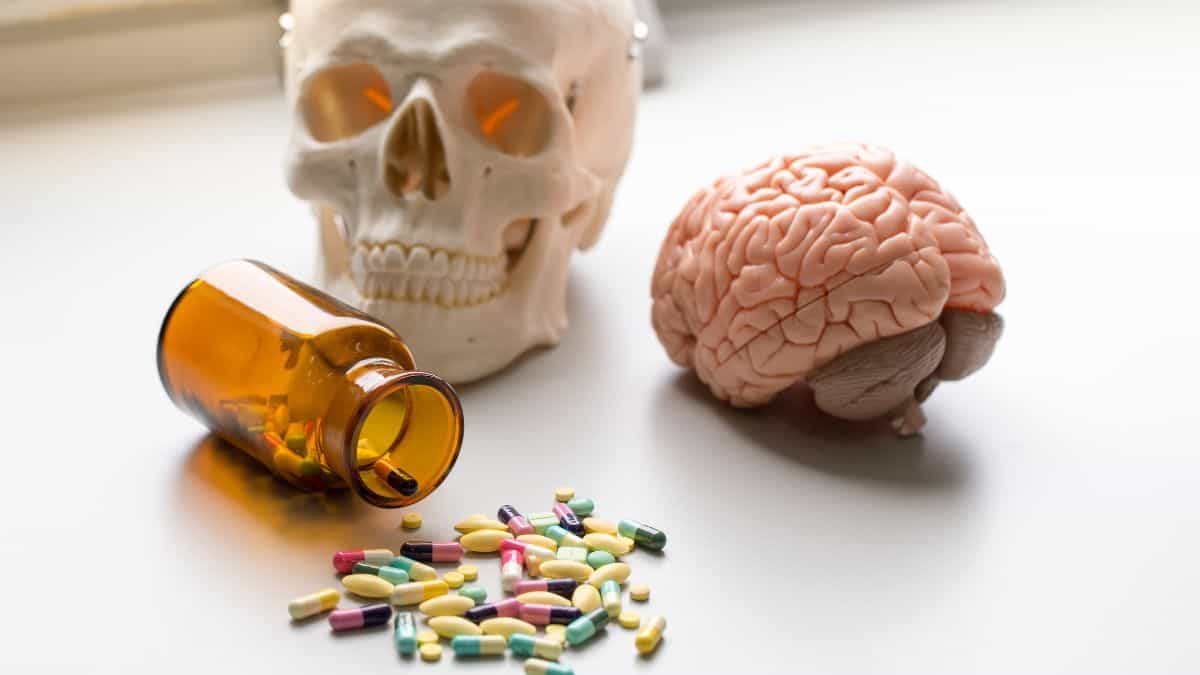Substance Use Disorder and Brain Health: How Do Drugs Affect the Brain?

The brain controls everything from your thoughts to bodily functions. It has an exquisite system consisting of neurons and neurotransmitters to ensure the smooth transmission of information throughout the body.
However, the introduction of drugs into the body can disrupt its functions. Long-term use of drugs usually results in physical and psychological problems.
How do Drugs Affect the Brain?
Drug addiction can develop problems in thinking, sleeping and breathing. Continue to read to discover what serious issues can be caused by drugs in the human body.
1. Withdrawal and Tolerance
With increasing drug use, the brain adjusts its receptor numbers and sensitivity, which reduces responsiveness to the substance. This newly developed tolerance can result in an overdose of drugs in an individual longing for pleasure.
Furthermore, withdrawal symptoms like irritability, depression, trembling, etc, complicate quitting drugs. The brain’s dependency on the drug to process things makes it difficult to stop taking drugs suddenly.
Even if individuals stay sober for a while, they develop physical and psychological symptoms, which can drive them to relapse.
2. Long- Term Cognitive Impairment
The impact of drugs on cognitive function extends beyond addiction and withdrawal. Reports show that people who overly consume alcohol or drugs have difficulties remembering things, deciding something or being attentive.
It has been reported that drugs like Marijuana affect the crucial part of the brain responsible for collecting and processing information. That’s why people with substance use disorder face problems in problem-solving or reasoning as their frontal lobes get damaged.
Under the influence, people tend to forget whatever they are doing. Even minor drugs can result in short-term memory loss. Prolonged use of drugs can result in irreversible damage. Thus, seeking the help of a medical professional becomes crucial.
The consequences of using drugs can be irreversible or fatal. Those suffering from addiction should sign up for rehab at a modern treatment facility like WhiteSands’ Tampa Rehab Center, which has personalized plans as per the patient’s requirement to ensure that every individual will get extensive support.
3. Change the Brain’s Structure
The disturbed cognitive system due to repeated drug use can result in structural changes in certain regions of the brain. These affected regions impact the decision-making capability and learning power.
Let’s understand how this happens.
Drugs disturb the system of sending and receiving messages through natural neurotransmitters and neurons by activating the signal and not giving any information.
Additionally, they also result in the abnormal release of natural neurotransmitters in a large amount disrupting the brain’s communication system. Drugs like cocaine overstimulate the brain, resulting in heightened alertness and energy.
This alteration in brain structure contributes to the cycle of addiction, as the brain’s priorities shift from normal activities towards the continuous urge to do drugs.
4. The Brain’s Reward System
The brain tends to repeat the actions that give us pleasure. The brain’s reward system does all the work to make it happen by releasing a neurotransmitter, dopamine.
When we engage in activities we like, the brain releases dopamine. Dopamine’s release creates a sensation of pleasure and signals the brain to repeat the action.
Introducing drugs into the body can exploit this natural system by producing dopamine in a large amount. Over time, repeated drug use can desensitize the brain’s reward system making it difficult for the individual to experience pleasure from any other activity besides using drugs.
Conclusion
Drugs profoundly impact a person both physically and psychologically. Understanding the science behind drug addiction and its impact on an individual’s brain can raise awareness about the dangers of substance abuse.
By shedding light on the neurological mechanisms that underlie addiction and its consequences, we can educate individuals, especially vulnerable teenagers and young adults with the knowledge they require to make informed decisions.




